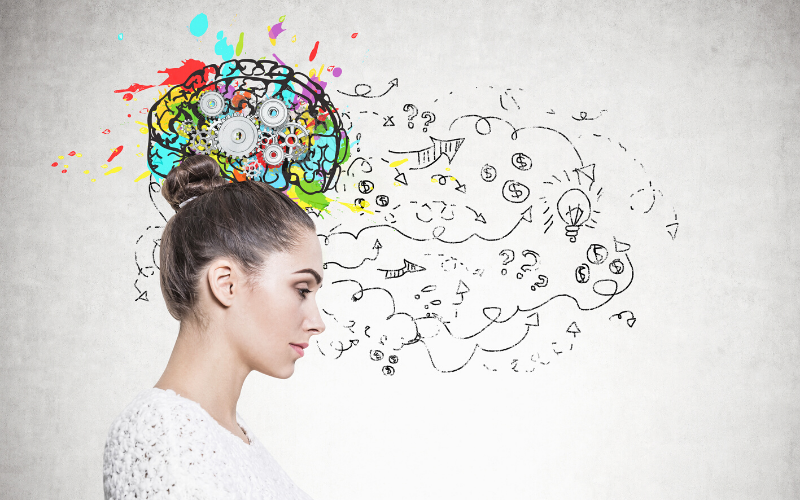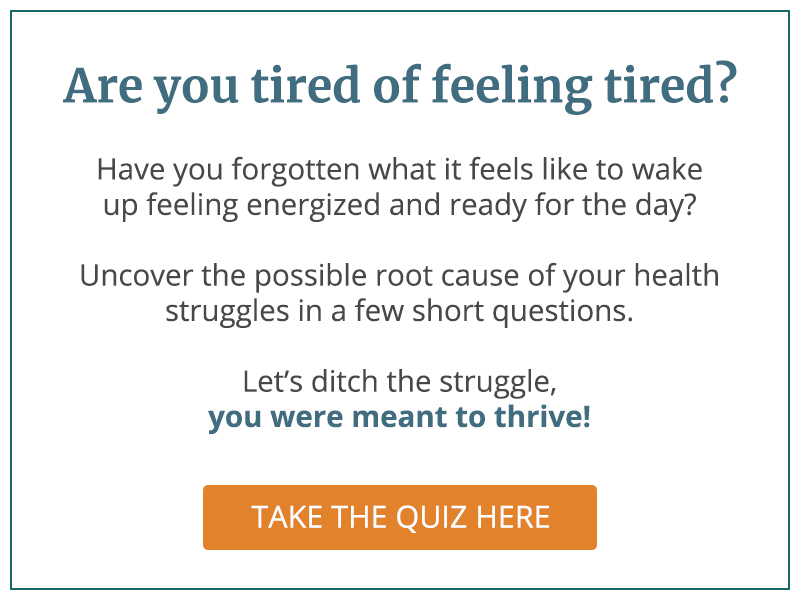About 18% of the population has an anxiety disorder, making it the most common mental health condition in the United States.
And while there are a host of medications often prescribed to treat anxiety, they can be at best difficult to discontinue taking and at worst addictive.
Benzodiazepines, in particular, can be problematic. They are not designed to be utilized as a long term management tool for anxiety…but they often become used in this way. Benzodiazepines are some of the most prescribed and most abused drugs in the US. They can be difficult to withdraw from after taking for just 3-4 weeks.
Antidepressants that are prescribed for anxiety can likewise prove difficult to discontinue once they’ve been used on a long term basis. In fact, nearly half of those who experience withdrawal symptoms from antidepressant cessation describe their symptoms as “severe.”
It’s probably for these reasons that a lot of patients ask me for advice on natural measures to help relieve anxiety.
One of the things I always recommend to start with when treating anxiety is diet.
Believe it or not, what we eat has a profound impact on brain chemistry. The right foods have the power to bring down inflammation, help control blood sugar levels, and even influence serotonin and Gamma-aminobutyric acid (GABA) — important neurotransmitters that can help reduce levels of anxiety and depression.
How Food Affects Your Brain
Even though it may sound unlikely, what you eat definitely affects your brain health. Believe it or not — 95% of your serotonin receptors are located in the lining of your gut. Serotonin is what’s known as the “happy hormone” because it’s responsible for regulating your mood, among other things.
Researchers have dubbed this “the gut-brain connection,” meaning that your gut is inextricably linked to your brain. So it makes sense that ingesting the right foods can impact your anxiety levels.
When you eat makes a difference in how you feel, too.
Have you ever skipped a meal or two and felt your anxiety skyrocket or your mood completely sour?
That’s because when your blood sugar crashes, it can cause tension in your body — resulting in heightened feelings of anxiety or moodiness.
Overall, if your body is constantly battling inflammation, neither your gut nor your brain can do their jobs properly. Which is why I’m such a proponent of an anti-inflammatory diet.
Studies have even linked this diet to a decrease in depression risk.
How To Eat To Reduce Anxiety
So, what and when you eat can affect your mental health.
But what’s the best way to start changing your habits to turn things around?
First, get in the habit of eating 3 regular meals per day. Don’t snack all the time and don’t wait for hours and hours to eat. Keep your blood sugar stable by eating just enough — don’t over or under-eat. Try to give yourself a nice long break from digesting food overnight.
Incorporate healthy fats, protein, and tons of vegetables into your diet. Ditch the processed and refined foods and fill your plate with veggies, beans, legumes, nuts, seeds, fruit, olive oil, avocado, and high-quality protein.
Focus on incorporating more of the following nutrients that are superstars for mental health:
1. Zinc
Load up on zinc-rich foods to help anxiety. Zinc is found in cashews, beef, and egg yolks. It’s been linked in studies to lowered anxiety levels.
2. Folate or B9
Studies have suggested for years that low levels of folate correlate with anxiety. Asparagus, leafy greens, and brussels sprouts are excellent sources.
3. Other B Vitamins
These help the body to make several neurotransmitters (like serotonin). Avocados and almonds are great choices.
4. Magnesium
Spinach, legumes, and seeds are great choices to add to your anxiety-reducing diet for their magnesium levels. Magnesium has been shown to reduce anxious behavior in studies.
5. Probiotics and Prebiotics
Truly fermented foods and fiber are two of the best things you can eat for health — and brain health is no exception. Remember when we talked about the gut-brain connection? This is where it really counts. Try to eat yogurt with live and active cultures, kimchi, artichokes, and bananas.
6. Omega 3s
Omega 3s are important for reducing inflammation and anxiety levels. A 2011 study of medical students showed a relationship between Omega 3 intake and anxiety. Salmon is a popular choice for this nutrient, but Omega 3s can also be found in nuts and seeds.
7. Antioxidants
Antioxidants help your body fight free radicals, which can cause disease. There’s also evidence to suggest that lowered antioxidants = higher anxiety levels. So there’s lots of good reason to load up. Berries are some of my favorite antioxidant-rich foods.
8. L-theanine
This core component of green tea has been prized for its ability to induce a state of calm (even though it actually has caffeine in it) for thousands of years. Studies now back up this love affair — green tea is a great choice for your health and may help reduce anxiety.
Other Ways To Naturally Reduce Anxiety
In addition to your diet, there are several other lifestyle changes that you can make to help naturally control your anxiety.
Here are some of my favorites:
1. Exercise
Getting plenty of exercise can help with anxiety levels. Bonus points if it’s outdoors.
2. Adaptogens
Certain herbs are known for helping our bodies to adapt to stress. They are called adaptogens. Some popular choices for anxiety include holy basil, Ashwaganda Rhodiola, and Siberian ginseng.
3. Cut down on caffeine
Caffeine can give you the jitters. If you suffer from anxiety, it’s best to switch to decaf until you figure out what’s at the root cause.
4. Meditation
Meditation is amazing for your body, mind, and soul. And yes, it’s even been studied for its effect on lowering anxiety. Start small and work your way up if you’re feeling intimidated by the idea.
5. Sleep
Sleep is so so so important for your health. I have a whole article on this, but please, if you’re feeling stressed out or anxious, especially now, try to focus on getting enough high quality sleep. Your anxiety levels and overall health depend on it.
Integrative and Functional Medicine in Austin
I know that crazy times can make anxiety levels skyrocket.
And sometimes, it feels like you’re doing everything you possibly can to make yourself feel better and it’s Just. Not. working.
I completely understand how frustrating that can be, believe me, I’ve been there myself.
But I also know exactly what it takes to turn your health around — I’ve helped hundreds of patients banish their fatigue, lose weight, lower their blood pressure, and turn their blood sugar levels around.
Typically, working with me involves a financial commitment and at a minimum, six to 12 months.
But I’ve recently been inspired to offer a quickstart program of 3 visits, so I can help you now, exactly where you’re at.
No need to come into the office, we’ll meet over the internet, thanks to the magic of telemedicine.
I’ll listen to your story. Your background, your medical history. Every detail. And we’ll talk, strategize, make a game plan, and get you on the quickest path to health — now.
You’ll walk away from this visit with a concrete plan of action. You’ll know exactly what to implement, and when.
You won’t have to wonder anymore.
And you won’t have to commit to a huge chunk of time with me.
I’m only offering these sessions for a short time, so if this is something that sounds like it could help you, please click here to book a quick discovery call with me.
It’s time to put your health issues behind you and Thrive!
References
“Facts & Statistics | Anxiety and Depression ….”
https://adaa.org/about-adaa/press-room/facts-statistics
“Withdrawal from long-term benzodiazepine use – NCBI.”
https://www.ncbi.nlm.nih.gov/pmc/articles/PMC1934057/
“Management of benzodiazepine misuse and … – NCBI.”
https://www.ncbi.nlm.nih.gov/pmc/articles/PMC4657308/
“Challenges of the pharmacological management … – NCBI – NIH.”
https://www.ncbi.nlm.nih.gov/pmc/articles/PMC5896864/
“A systematic review into the incidence, severity and duration ….” 5 Oct. 2019,
https://www.sciencedirect.com/science/article/pii/S0306460318308347
“A review of the management of antidepressant … – NCBI.” https://www.ncbi.nlm.nih.gov/pmc/articles/PMC4722507/.
“Antidepressant Withdrawal and Rebound Phenomena – NCBI.” 17 May. 2019,
https://www.ncbi.nlm.nih.gov/pmc/articles/PMC6637660/
“The Association Between the Mediterranean Lifestyle and ….” 9 Aug. 2016, https://journals.sagepub.com/doi/full/10.1177/2167702616638651.
“A randomised controlled trial of dietary ….” 30 Jan. 2017, https://bmcmedicine.biomedcentral.com/articles/10.1186/s12916-017-0791-y.
“Effects of nano and conventional zinc oxide on anxiety … – NCBI.” https://www.ncbi.nlm.nih.gov/pubmed/24130388.
“Use of folic acid and vitamin supplementation among … – NCBI.” 30 Sep. 2011, https://www.ncbi.nlm.nih.gov/pmc/articles/PMC3200167/.
“Magnesium deficiency induces anxiety and HPA axis … – NCBI.” https://www.ncbi.nlm.nih.gov/pmc/articles/PMC3198864/.
“Fermented foods, neuroticism, and social anxiety: An … – NCBI.” 28 Apr. 2015, https://www.ncbi.nlm.nih.gov/pubmed/25998000.
“Omega-3 supplementation lowers inflammation … – NCBI – NIH.” 19 Jul. 2011, https://www.ncbi.nlm.nih.gov/pubmed/21784145.
“Novel Therapeutic Targets in Depression and Anxiety … – NCBI.” https://www.ncbi.nlm.nih.gov/pmc/articles/PMC3964743/.
“The total antioxidant content of more than 3100 foods … – NCBI.” 22 Jan. 2010, https://www.ncbi.nlm.nih.gov/pmc/articles/PMC2841576/.
“Anti-stress Effect of Green Tea with Lowered … – J-Stage.”
https://www.jstage.jst.go.jp/article/bpb/40/6/40_b17-00141/_article
“Anti-Stress, Behavioural and … – NCBI.” 19 Jan. 2016, https://www.ncbi.nlm.nih.gov/pmc/articles/PMC4728665/.
“Randomized Controlled Trial of ….”



